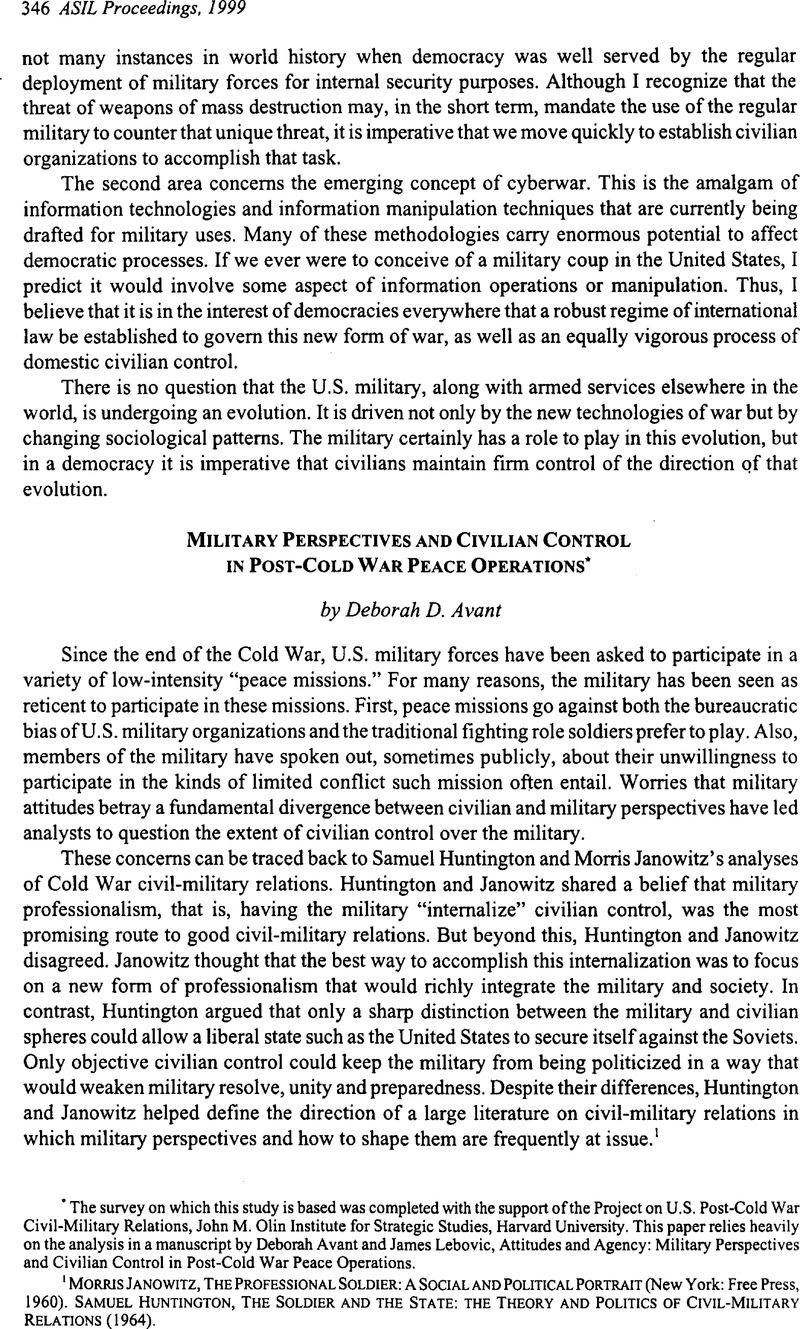No CrossRef data available.
Article contents
Military Perspectives and Civilian Control in Post-Cold War Peace Operations*
Published online by Cambridge University Press: 28 February 2017
Abstract

- Type
- Culture
- Information
- Copyright
- Copyright © American Society of International Law 1999
Footnotes
The survey on which this study is based was completed with the support of the Project on U.S. Post-Cold War Civil-Military Relations, John M. Olin Institute for Strategic Studies, Harvard University. This paper relies heavily on the analysis in a manuscript by Deborah Avant and James Lebovic, Attitudes and Agency: Military Perspectives and Civilian Control in Post-Cold War Peace Operations.
References
1 Janowitz, Morris, The Professional Soldier: A Social and Political Portrait (New York: Free Press, 1960)Google Scholar. Samuel Huntington, the Soldier and the State: the Theory and Politics of Civil-Military Relations (1964).
2 Feaver, Peter, “The Civil-Military Problématique: Huntington, Janowitz and the Question of Civilian Control,” Armed Forces and Society Vol. 23, No. 2 (Winter 1996)CrossRefGoogle Scholar.
3 For analyses of the U.S. military during the Cold War, see Fen O. Hampson, Jr., Unguided Missiles: How America Buys Its Weapons (1986); Andrew Krepinevich, the Army in Vietnam (1986); Thomas L. McNaugher, New Weapons, Old Politics: America’s Military Procurement Muddle (1989); R.A. Stubbing, The Defense Game: an Insider Explores the Astonishing Realities of America’s Defense Establishment (1986). Those that stretch into the post-Cold War include James H. Lebovic, Foregone Conclusions: Us Weapons Acquisition in the Post-Cold War Transition (1996).
4 Miller, Laura, Do Soldiers Hate Peacekeeping? The Case of Preventative Diplomacy Operations in Macedonia, Armed Forces and Society 25 (Spring 1997)Google Scholar.
5 The fact that president Clinton did not serve in the military and yet criticized its performance in Vietnam combined with his perceived lack of integrity have led many in the military to have a poor opinion of this particular commander in chief.
6 Ruggie, John, The Past as Prologue? Interests, Identity, and American Foreign Policy, International Security 21, 4 (Spring, 1997)Google Scholar.




